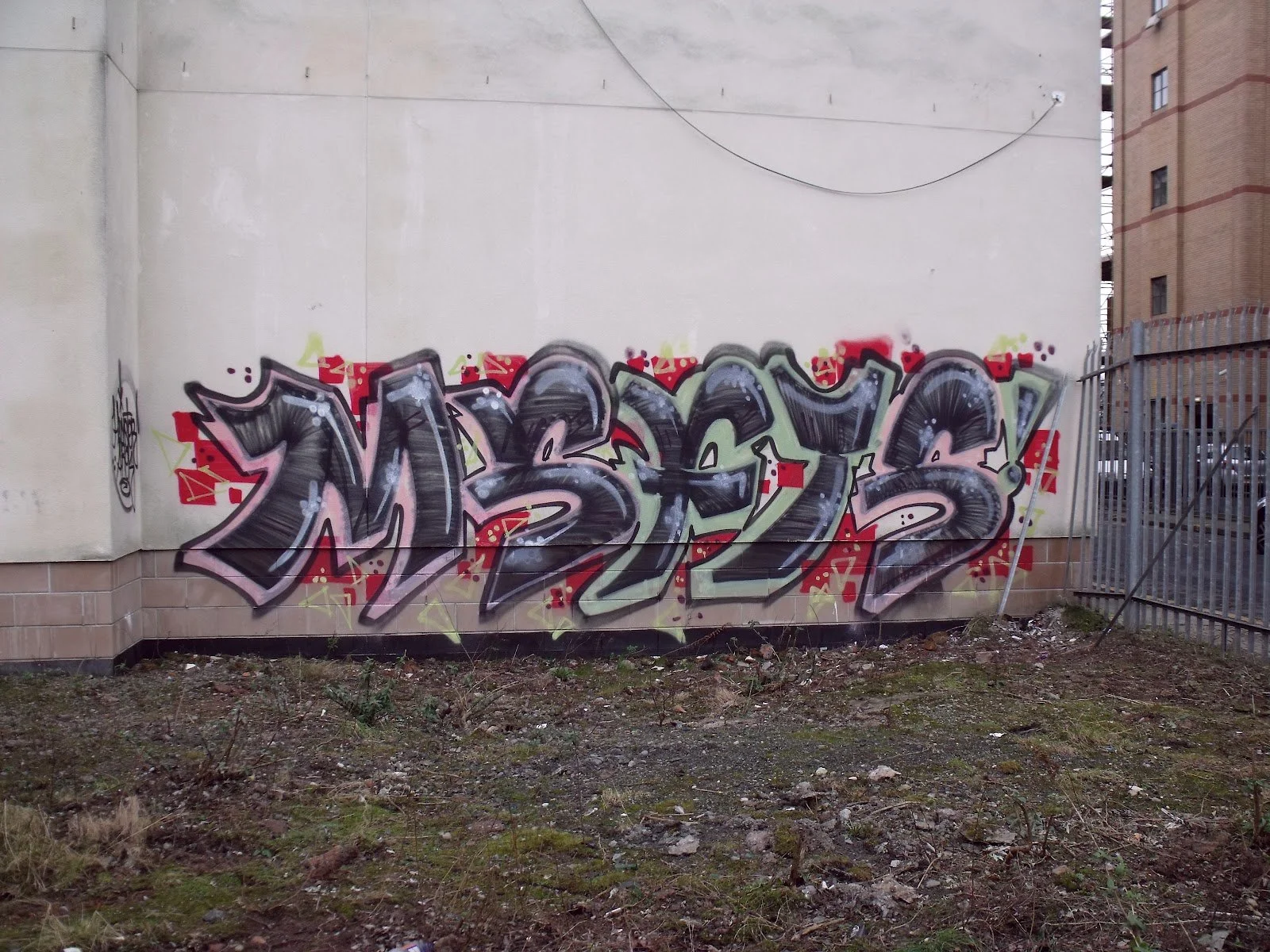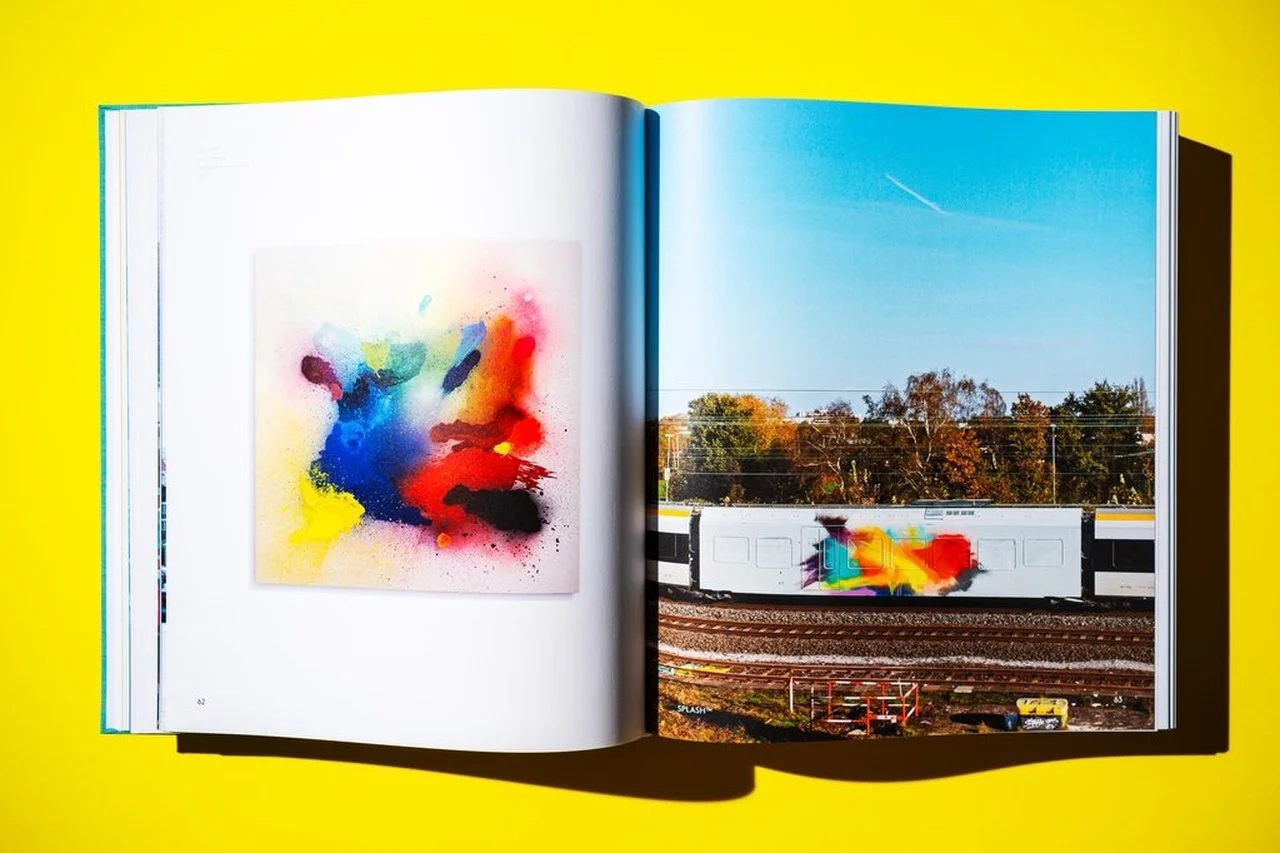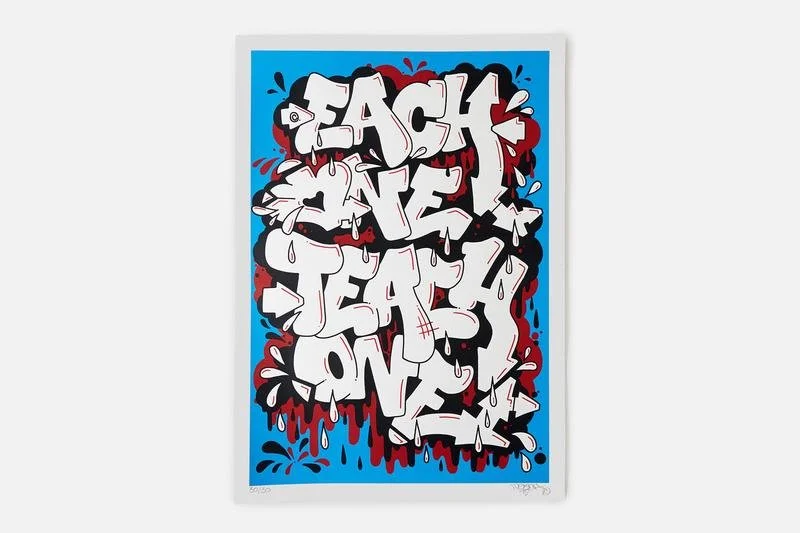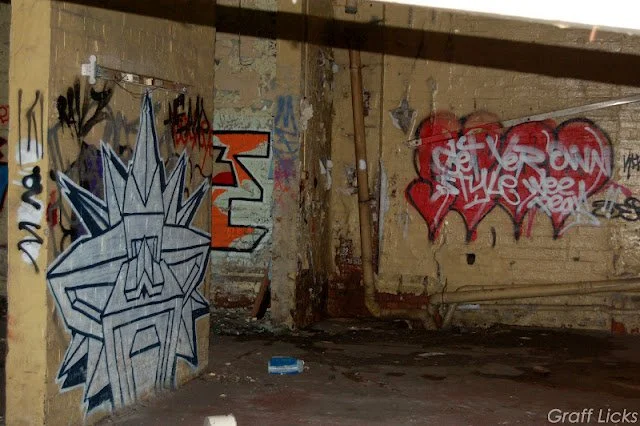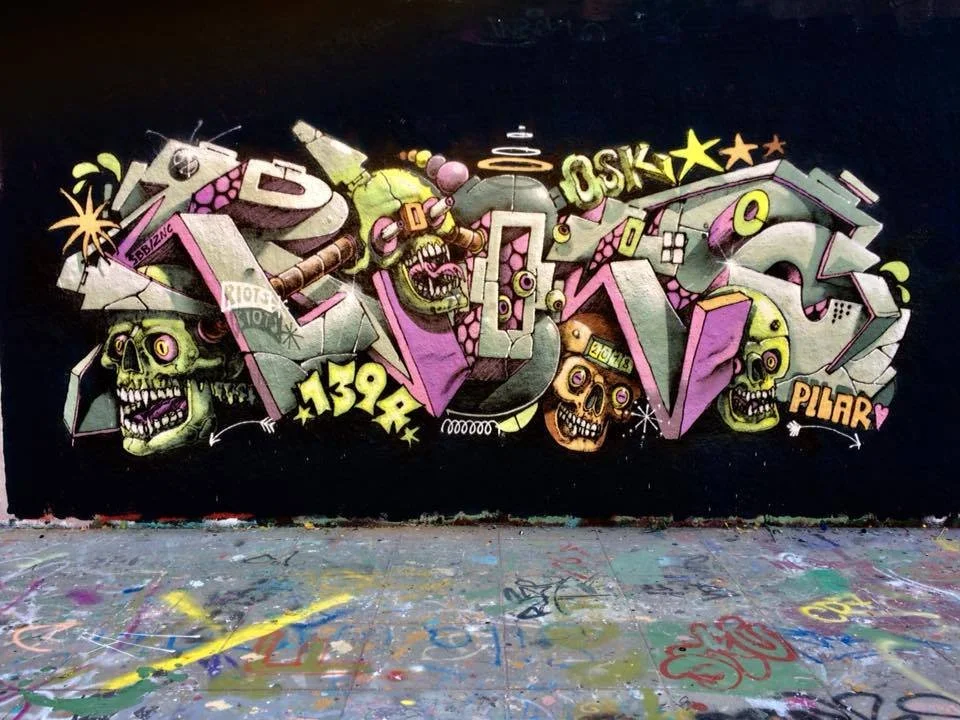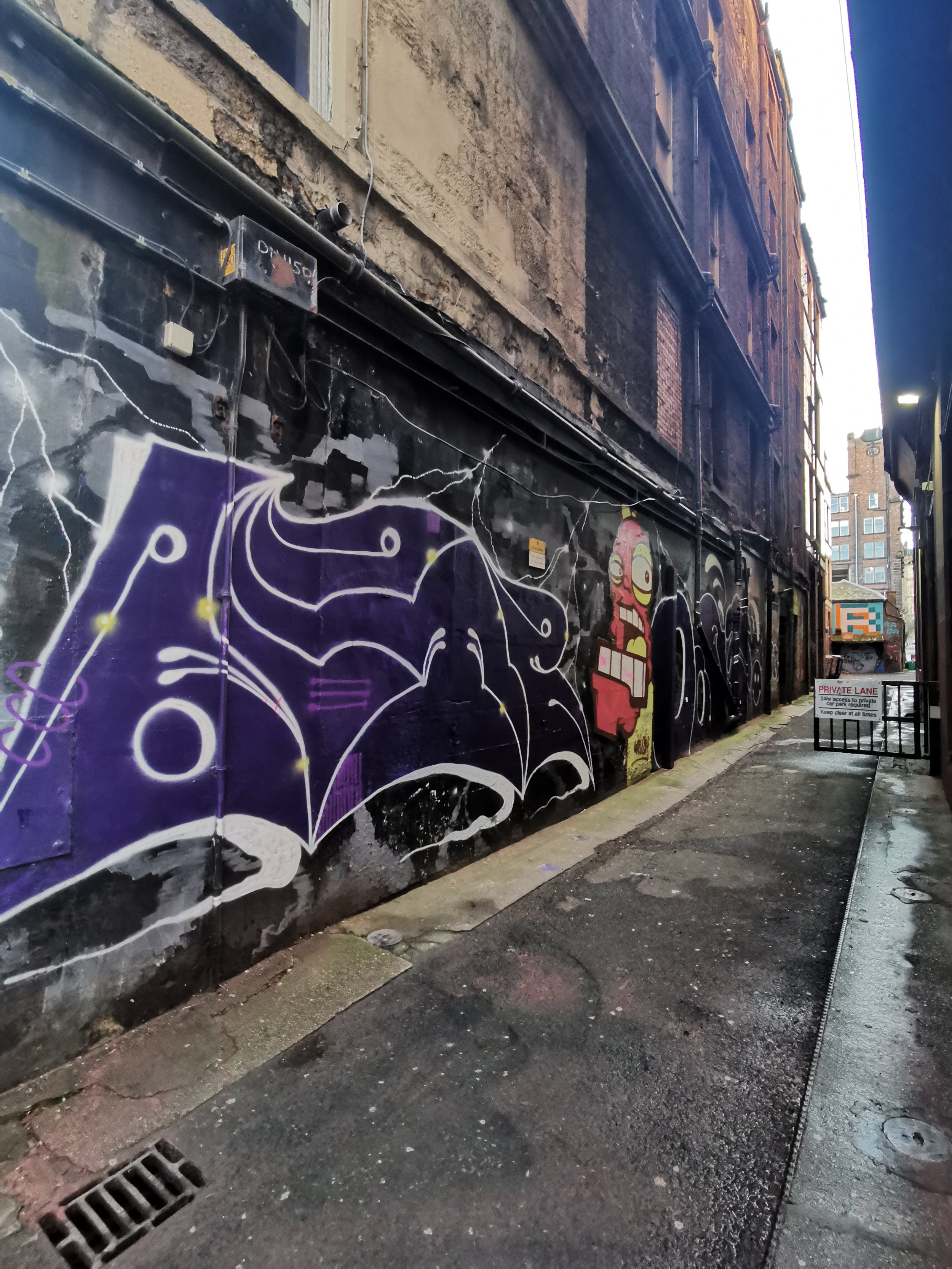Cultural onboarding and the pitfalls of masculinity.
Anonim + Gufoe 2022 I was watching a video about two different intellectual groups who were critiquing each other ideas but trying to find common ground so they could work together. It was a bit dry at points but it got me thinking about something. They were speaking about social media and how it is a bad place for discourse and one guy explained that when he moved his groups discussions from facebook to their own website there were way less fights and the conversations were much slower.
This made me think about forums and the pace we used to communicate on them. I also started to think about how I could join their forum and what that would be like. I would be a noob. I would have to explain that I was a noob and people would basically have to explain a lot of shit to me to get me caught up on what’s been happening.
It made me think about graffiti, and how there is so much cultural history and context and when someone new joins in they don’t know any of it. It’s really hard to just enter in and be fully fledged. Basically they call this onboarding. We have to onboard newcomers and this can be a laborious process. However I believe that it is a worthwhile process because it is these newcomers who keep the culture fresh.
Literally the last thread on the Duncan Cumming forum. So I’m thinking about how toxic it used to be on the forums I was on, people would haze the newcomers basically. Instead of onboarding them, they would fuck with them and it was almost like they were trying to scare them away. I think this is often done as a test of someone’s faith and dedication to the thing they are interested in. To test if they are really interested and willing to fight for it, or are they just half arsed about it and will leave after some abuse.
I personally feel really conflicted about this. I think of all the people who probably love the thing, but can't take the abuse so they leave. This creates a selection bias for people who are hardened to the abuse, who can either stick it out until they are no longer a noob, perhaps a new newcomer arrives and relieves them of their newcomer status, or they might become hardened to the abuse and internalise it as a part of the culture and then become abusers themselves. We see this so often and I think it’s a really toxic situation.
So how can we
Protect our cultural values?
Create a new onboarding system for newcomers?
To the first point I want to say that I do think it is important to have some integrity maintained within a culture and I do believe there are values that are inherent in the culture of graffiti that should be maintained. However I feel that some values within graffiti are often hazy at best and are often shaped by external incentive structures, along with overlapping cultural incentives from other cultural identities that writers might hold. For example, graffiti as a culture holds self expression as one value, this is quite existential and most conversations around it discuss the right to create work wherever you like in the public realm. It focuses on the placement and the action of the act, rather than the content. It is when content comes into play that this cultural value is contested.
In terms of content, another value that is held within graffiti is a somewhat rigid idea of what constitutes ‘real’ graffiti. For many the idea of ‘real’ graffiti is limited to letter based work that is created illegally in the street. The nuances here are endless and I will include a couple examples of what some might constitute ‘real’ graffiti. Illegal paintings on trains. Tags and throw ups created in the streets. Perhaps if we look at the schismogenesis, which is a word I learned recently, within the culture we can see that often ‘real’ graffiti is defined by what it is not. It is not character based. It is not paste ups or stickers. It is not pretty. These are just a few examples and are still focusing on the cultural values held within graffiti.
I would now like to look at some of the overlapping incentive structures that can be found within graffiti, these overlaps have connections and are often linked to some of the previous definitions. If we take a look at masculinity as a first example there has been clearly defined limits of what is and what is not masculine.
The Graffiti Subculture: Youth, Masculinity and Identity in London and New YorkNancy Macdonald argues that the act and lifestyle of graffiti is often a way for young men to construct their own masculinity. In a society where the opportunities to express one's own masculinity are limited, graffiti becomes a place for a certain type of man to exist. Now this is where it gets interesting for me. I would argue that one of the main ways for men to construct their masculinity in Britain is around football and football culture. There is an overwhelming hegemony within Britain that as a man, you will like football. This means that for the countless men who do not fall within this category your options to ‘be a man’ are limited.
I think it is also worth mentioning here that male creativity is also narrowly defined in our society. We had success stories via the likes of Damien Hirst and the Britpop era, but these again focused on a very narrow idea of what masculinity looks like. Oasis exposed a generation of young men to playing guitar and singing, but they did so by embodying a very strict form of masculinity, one of aggression, pints, lines and again, a love of football. I would add in here that this time was also rampant with neoliberal values and the excessive accumulation of wealth seemed to be intrinsically linked to success and creativity.
Che - Queens Park Recs 2010I believe that graffiti served for a long time as somewhere where people, who were not attracted by more mainstream cultures such as football, could express themselves and form social collectives and communities together. This culture and act gave young men who didn’t fit into the regular understanding of what it was to be a boy or a man, somewhere to be themselves, somewhere to focus their time and energy and find a sense of purpose, which again is difficult in the neoliberal landscape. I think we can link this sense of purpose to our common ideals of masculinity. Ultimately masculinity wants us to be someone, to be something.
But if you are a culture that has been created by misfits, for misfits, what values do you hold as a culture? Recently there has been an influx of women and girls entering into the world of skateboarding, this has been great to see but often the conversations around inclusion create some perhaps unexpected conflicts. Skateboarders, much like graffiti writers, have always seen themselves as outsiders. In fact, they have always been treated as outsiders, vilified and denigrated for their choice of lifestyle. This means that when women have entered the scene and pointed out that the space isn’t as inclusive as it could be , this has upset some people. I am mindful here that this might seem like I am minimising the experience of women or other oppressed groups, this is not my intention, what I am trying to point out is that as social groups, skaters and graffiti writers have often been treated unfairly and as such have created a strong sense of identity, one which prides itself on its acceptance of misfits. They have a strong sense of inclusion because they themselves have been judged harshly by the dominant culture.
Power - Renfrew Skatepark 2011So what happens when newcomers arrive and perhaps don’t know about this rich history of inclusion, or perhaps these values have been slowly eroded by other external factors such as masculinity? What is more important, the value of skating being for everyone, or the value of skating being a way to prove you are a man? Now I know that graffiti hasn’t reached this same point yet, it may never reach it, but I would argue that street art is basically just a euphemism for graffiti and has potentially been redefined in this way to maintain some level of defence from factors which might disrupt the internal value system graffiti holds, or at least the more masculinity focused elements.
This might be a hot take that is too big for this article but I do like the idea that street art was an encouraged moniker as it allowed graffiti writers to differentiate themselves from stuff they deemed to be less manly. The term art fag has been thrown about for decades and I think it perfectly sums up a part of the collective mindset within graffiti. Now I would caveat this by saying that I think graffiti is basically a microcosm of society as a whole, so if we look at the bigger picture homophobia is rife across the country and the world so it’s no real surprise that this term is used within graffiti. I would also argue that it is actually the masculinity side of things that is encouraging this type of language. This phrase is used to put down others for daring to be different. For daring to step outside the rigid confines of what is ‘real’ graffiti.
This is a comment I found in a thread on Flickr asking “What is an Art Fag?”. There is a general sense of anti-intellectualism within this comment. If you have a message, or a political point to prove via your art, you are an art fag. It’s really immature and is based on the idea that being gay is a bad thing, which is directly linked to the idea that being gay makes you less of a man. It doesn’t, if you take anything from this article, let it be the fact that there are endless possible ways to be a man. There is no right or wrong way. Unfortunately we are often conditioned into believing there are right and wrong ways, but this is bullshit and I am only just starting to understand this properly at the age of 31. So if you are a teenager who is struggling with the idea of becoming a man, I’m sorry that society doesn’t make it easy for us, but I think being a man is whatever it means to you. It’s basically the same as being a human, there are endless possibilities and variations and whatever feels right for you is what’s right for you.
I think this idea of there being a right or a wrong way is actually really crucial to the points I am trying to make here. Basically when we find rigid value systems in place, this usually means there is a fear of diversity. When I spoke to Nancy Macdonald recently one thing in particular stuck out to me. She said,
“They don’t like ambiguity, it’s confusing.”
Nancy Macdonald 2022
This resonated with me a lot because it is scary to sit in that ambiguity. We have been taught that ambiguity is dangerous, that it should be eliminated. The root of ambiguous is the Latin word ambiguus meaning doubtful. Doubt must be eradicated when it comes to being a man. There can be no uncertainty in this context. Men actually feel threatened when uncertainty arises around their own masculinity, but this fear is a vicious cycle which only exists because of the misconception that there should be no doubt around manhood, so any slight against their own is deemed threatening. It is a self perpetuating cycling that unfortunately as men we are all part of. So how do we break this cycle?
I think we do this by encouraging misfits. By encouraging difference and diversity. I believe that if we are truly misfits and renegades, then we should not fall into the same traps that wider society does. Again, graffiti is a microcosm so will always reflect wider society, but I do also think that if a culture is able to define itself so confidently, to create its own visual language and vocabulary, it should also be able to define its own values which are aligned with the essence of what real graffiti stands for.
Misfits - Glasgow 2012
So what exactly are the real values of graffiti? For me I think it could be argued that the only two values that really matter are style and getting up. Some would argue that you need both, but again there is nuance here and the arguments work both ways. If you have style but don’t paint the streets then this maybe isn’t as valued as someone with less style who is all city. Again these are quite rigid value systems but I think for me personally they are worthwhile. I believe that getting up, making your mark on the city, is an integral part of the culture and is important because it is a response to a need to be seen and heard. These are basic human needs which are unfortunately met less and less by our day to day lives. Just like the lack of places for masculinities to exist, we have less places for our needs to be met. We are more and more frequently boxed into being a consumer, which will often only meet narrowly defined needs, which actually become more like addictions. If we take fast food as an example, we are able to consume this, but our need for nutrition is never really met there. So our need for connection, to be seen and to be heard, to feel valued within a society, the opportunities to do this are few and far between. That is why I believe getting up is important, it gives agency to the person who wants to get up. If I want my need to be met I will create a situation where that can happen.
"The child who is not embraced by the village will burn it down to feel its warmth"
African proverb.
This proverb always comes to my mind when I think about graffiti. I know that some writers reading this might not like being defined this way, they might feel it doesn’t represent them, that it makes them seem weak, as if they are seeking something when inside they feel they are doing this for themselves. I would take those points on board, and as we are all nuanced and complex individuals I would assume that for some that is true.
However I have also seen a lot of pain and trauma amongst writers, amongst the misfits that make up our culture and I believe that being seen and being heard, even if just by your own peer group, can help to heal some of that pain. Recognition, is the value here. It may be superficial, a desire to be recognised, seeking fame or infamy, but I would argue that it is deeper than that. I believe recognition is what we are seeking.
When you go to your job no one gives you recognition for it, it’s just what you are supposed to do. The recognition comes in the form of your wages at the end of the month, but that is a transaction. It is not relational. Recognition is relational. It is connected to respect and admiration, it exists outwith the structure of money and lives in the world of the gift. We can bestow the gift of recognition onto one another. We can recognise when someone has done something we admire and respect. Real recognise real.
Amee Atak Grin - Melbourne 2015 So where does style come into it? I think I’m going to have to contradict myself, or at least debate myself a wee bit here because I think style is really important. Firstly I want to say I don’t really know why, I just think it is important. I will go on to explain why style isn’t necessarily important, but I think it’s worth mentioning first that I do think it is important. I know, confusing right? I would recommend reading ‘Zen and the art of motorcycle maintenance’ if you would like your brain pickled even further on this subject. Basically quality and style exist, we don’t really know why they exist or how to define them, but they do exist. So with that in mind I would now like to try and unpack that a wee bit in terms of graffiti. Graffiti could be seen in the same light as fashion. There are trends. These trends come in waves, and often create disagreements within cultures about what is actually valuable and good for the culture as a whole.
The easiest and most obvious example of this within graffiti can be traced back to Style Wars, where Cap is the graffiti bomber prioritising getting up, as opposed to the other artists in the movie, who I would argue prioritise both getting up and style. Just to throw in another hot take, I think Cap sees himself as hardcore ‘real’ graffiti and focuses on getting up because he is potentially afraid of his inability to paint a burner. Because of this fear he decides to reject this pursuit of style, but in this hardcore ‘real’ graffiti rejection of style, he births the anti style movement!
‘REAL’ GRAFFITI = ANTI STYLE!
Aha I do like that as an idea but I am being slightly comical when I write that, however I do think that there is some truth to it, at least at a value level. He believes that getting up is the most important thing and speaks about more and more. There are undoubtedly anti styler writers now, who are more up than some traditional style writers within the culture and yet the anti stylers are often the focus of a lot of the negative attention. Just because they don’t fall into the previously defined style categories that are valorised within the culture. This is interesting to think about though, because the previously defined styles are important for a reason. Those styles are a way for writers to show how proficient they are at painting. It serves as a barometer of what is good and what is not. It is easily defined. I think this can be helpful from a competitive viewpoint, if graffiti was in the Olympics it would probably be wild styles that are being judged, as there is at least a framework around how they are created and could potentially be judged against each other.
I have only written that part to point out the discomfort in the arguments against anti style. Graffiti will never be in the Olympics, or at least I don’t think it ever should be. It is an individual pursuit and exploration of your own creativity and agency and I think that is what we should always celebrate. I think unfortunately for many writers this idea of competition can take over, and yes this has always been part of hip hop culture, but I believe the purpose of this was to use this healthy competition between peers to accelerate the development of new styles and elevate the culture as a whole. Too often the idea of competition is looked upon as a zero sum game. If you win, I lose. Which means I have to destroy you. I cannot risk you coming back and challenging me again, I must remove you from the culture. This isn’t a healthy way for a culture to exist. It becomes a monoculture which leads me nicely to the second point, how can we create a new onboarding system for newcomers?
I feel that this competitive mindset is often applied to newcomers. They are often deemed a threat, or at least that is how it seems by the actions of many writers. To be specific here I am thinking about the lack of transparency or help given to newcomers when it comes to graffiti. It is what I mentioned at the start about the noobs on a forum being treated like shit. This will happen again and again within the graffiti community, newcomers will make the same mistakes over and over again, and existing writers will scorn them for their mistakes, with no compassion to their ignorance to the ‘rules’ we have set for ourselves. This is a massive point within this all. As misfits and people who are anti authority, we have created a lot of our rules and structures to govern ourselves, which to me feels like a bit of a paradox. I guess it feels nice to be in control though, I think that’s the pull here.
Fuck the rules!… Unless I get to make them and enforce them.
Then fuck you art fag and fuck your anti style.
Graffiti Avantgarde - Taps and Moses 2020
I think it is worth mentioning here that I am also aware that there are other factors to consider here. It is pretty simplistic of me to say that the reason people treat newcomers like shit is because they feel threatened by them, I actually don’t think that’s the case. I think there is a subtle undertone of it, but I am also aware that if you are part of a culture, for many years, perhaps even decades. Then over the course of that time you are going to encounter your fair share of newcomers. Now some would argue that you are an ambassador for your culture, and it is your duty to encourage and welcome these newcomers into the fold. However, again if we look at the way our society is structured, our time and labour are precious commodities to us now. Not to be taken for granted or gifted away willy nilly. This I believe is another part of the behaviours we see towards newcomers. If you have been involved in a culture for 20 years you are going to have seen hundreds newcomers arrive into the culture you love and the majority of them slowly fade back out of the culture.
It sounds horrible but it is basic self preservation. If as a single human you tried to help every one of these people actualise their own dreams within the culture you would burn yourself out. Although I don’t think the way to find those who are worthy of your time and energy is by being horrible to them and making sure they are tough and willing to stick it out despite the abuse. As I said at the start, this will only create a very specific type of writer, but perhaps that is the point. Perhaps maintaining the status quo is what everyone with any type of power wants. I think that is probably true. Change can be scary when you are in a position of power or even a position of prestige.
I wrote worthy of your time and energy there but I don’t even think this is right either, I don’t think anyone should have to prove themselves worthy for anything, I think it is more about relationships. Real recognise real. I’m sure everyone has had that situation where they meet someone who is maybe looking for some help, or who we can tell is maybe a wee bit lost, and we help that person. We do this not because they have proven their worth somehow. We do this because we ourselves have been that person. We have been in need of help, or slightly lost, and someone helped us. Each one teach one.
Teach x Maharishi - Each One Teach One 2019
I think it is important to note here that I have always attributed ‘Each One Teach One’ to hip hop. It was only recently that I looked into it more and found out that it actually comes from slaves in America. When one slave would learn to read they would teach another. Each one teach one is a declaration of solidarity against oppression and I believe that hip hop culture and graffiti directly tap into that lineage. It is about empowering ourselves against the oppressor. Too often we are confused as to who is really oppressing us, and even more often we will just end up oppressing ourselves within the culture we should be using to free ourselves.
So how can we break this cycle? I could say a very simple answer here. Be respectful, treat people how you would like to be treated etc etc. But I think we have to go a wee bit deeper. When we take into context the stuff I have mentioned about masculinity, it is actually much more complicated than just being nice to each other. Well being nice is probably the answer, but being nice is often seen as a sign of weakness and weakness will often be preyed upon by other men. This again creates a vicious cycle where no one wants to be nice for fear of being taken advantage of, leaving everyone feeling slightly uncomfortable, wishing they could be nice but having to act like a prick so everyone knows they aren’t a shitebag.
I think that would be a good first step. Changing the idea of weakness being a disadvantage. It’s such a brutal state of affairs that being a prick is seen as more desirable, than being seen as a shitebag. What does that even mean? Why is this such an insult to us? Again it’s because it questions our masculinity. It challenges our status as a man. You are a pussy. That’s what they will say to you. They will remove your manhood and label you as scared, as weak. The saddest part about this is that these people are not brave. They are scared themselves, they just can’t ever admit it, in case another man finds out and takes advantage of him because of it. We have created a system where we are all afraid of each other. I find this really fucking sad. It doesn’t have to be this way. I actually think that people who take advantage of people's weaknesses are bullies and liberty takers. We know deep down this is wrong, but it is so hard to call out because we have to put ourselves on the line to do it, we have to expose ourselves to the danger of being attacked, so it is easier to just sit back and watch it happen to someone else.
“Get yer own style wee peas” I think it is also worth saying that often what we deem ‘weaknesses’ are not actually weaknesses at all. They are strengths and part of the human experience. For too long roles have been separated into masculine and feminine, if you are sensitive and caring you are feminine. This is too rigid and lacks the nuance of the human experience. We all have the capacity to be loving and caring. Some of us are more inclined to it depending on our upbringing etc. But I would push back against any sense of this being the domain of women, or bravery and courage being solely the domain of men.
I think forgiveness will be an important step in this process. Often the people who are now in positions of power or prestige, have come up through a very different structure than the one I am proposing. This means that they will have internalised a different set of values and have different sets of experiences. This can also be true of the different walks of life people will be coming from who take part in this culture. So with this wide variety of experiences and values, we have to understand that sometimes people will make mistakes. Sometimes people will hurt us. This is a fact of life, and although I think as humanity evolves we should be striving to reduce unnecessary suffering, suffering and interpersonal conflict will always exist. We should be able to forgive people for the harm they have done to us.
On the flip side of that people should be willing to be accountable for their actions, and to apologise when necessary. Apologising is another thing that people deem as a weakness. I would argue again that admitting you are wrong is one of the most powerful tools we have at our disposal. It is an integral part of learning and developing as human beings. If we are unable to admit when we are wrong for fear of losing face then we will stagnate and nothing will ever change. We will be stuck in the same cycle forever and that’s the opposite of what our culture is about. Our culture is about pushing boundaries, about exploring what is possible and about inspiring others to join us on that quest.
Riots1394 - 2018
So what else can we do for newcomers? I think just help if you can, if you can’t, then at least don’t hinder. You might feel like you had to struggle like fuck to get to where you are and no one deserves a free pass, that’s fine, but what is your end goal with that? No one exists in a vacuum and we have all had help along the way, we have all been inspired by other people. So I would argue that that is our role in this situation, as people who are already part of the culture, we are there to help and to be inspiring to the next generation. It is not our job to gatekeep the culture, to protect it from being diluted or turned into something that doesn’t belong to us.
The culture is safe. Too often people are afraid of what might happen. They are afraid that things will change and that it won't be the same as it used to be. That is life. Things are always in a constant state of change and this desire to control things is completely against what I believe graffiti stands for. Think about all the ways they try to control the train yards, all the systems they put in place to control what happens there. It doesn’t work, people will always find a way to do what they want to do. That’s what’s so fucking beautiful about the whole thing, no matter how many people tell you not to do it, about how bad it is. You will always keep doing it, because you can. So it pains me to see us recreate these same systems of control that we ourselves know do not work. We have to allow emergence to take place.
The theory of emergence is one of the best ideas I have read about in the past few years. It is basically the idea that we cannot control what happens in the world. No matter how hard we try or how much we wish we could. Things will always emerge that we cannot predict. So we have two choices about how we interact with emergence, we can spend the rest of our lives trying to fight it. Basically becoming the buff, fighting a losing battle against an ever emergent phenomenon such as graffiti. Or we can move with the emergence, when it takes place we can coevolve with it, we can incorporate the new insights and aesthetics into our existing frameworks and we can keep moving. We can continue to be excited by what might happen next and keep the cycle of inspiration going.
Blutr Panda Oosi - Queen St Glasgow 2021
You never know what the next thing might be, it might be your favourite shit ever, but if people are too afraid to experiment we might never get to see it.
Cheers.
Panda.








